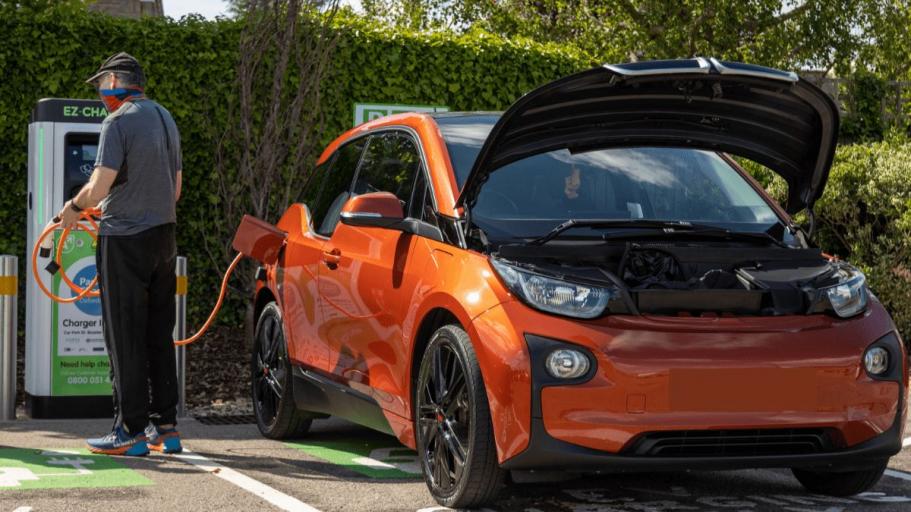Switch to driving an electric vehicle

Wherever you are travelling, it’s best to consider walking, cycling or public transport as your first option if possible. However, the reality is that for now most of us still need to drive — either occasionally or regularly — and so the best thing to do is ‘drive less and drive better’.
That basically means switching your essential car journeys from polluting petrol and diesel cars to more environmentally friendly electric ones! Just think of the personal benefits: from breathing in fumes at the petrol station to waking up every morning to a fully charged car, and pretty much driving on sunshine if you have charged with 100% renewable energy — what a breath of fresh air!
EVs are also being found to have incredibly long lives — 25 years or more — due to low needs for engine maintenance, and they are significantly cheaper to run and maintain. Plus, you can enjoy a more powerful, quiet, responsive, and overall better driving experience. And that’s before we have even talked about the environmental benefits of zero tailpipe emissions and lower carbon impact.
It is predicted that by 2030, one in every five cars on the road will be fully electric. There are already a huge range of EV models to choose from these days, including second-hand EVs, and options to lease EVs and use EV car clubs if you don’t need to outright own your own car. Driving electric will soon become not only the greenest but most affordable driving choice for us all.
Tips
Think long term: if you can’t buy second-hand, new electric vehicles can feel expensive, but lower maintenance and running costs mean they will likely work out cheaper long-term.
Relax: Many new owners worry about running out of charge on longer journeys. Electric vehicles can cover long distances, but the average daily journey is often only five to ten miles. You may only need to charge once a week week/fortnight to stay fully powered up.
Look at newer and older: buying a good, pre-owned electric car is more affordable and avoids the factory emissions still required to build a new car.
Share: if you only need a car occasionally, clubs like Co-Wheels offer an affordable way to make those little journeys greener.
Learn how to tell fact from fiction: There is lot of negativity out there about EVs, but a lot of it simply isn’t true! Download this super handy ‘Little Book of EV Myths’ produced by FairCharge to make sure you know what’s what.
Climate Impact
- Choose cleaner: Electric vehicles are much better for the environment than petrol or diesel vehicles, with much lower CO2 emissions per mile. Even if you don’t charge using 100% renewable energy, electricity from the grid has a high proportion of renewables and is always miles cleaner than petrol or diesel.
- Long term change: While mining certain battery materials has a negative environmental impact, work to improve the efficiency of electric vehicle batteries will reduce the need to mine. And given the longer lifespan of electric vehicles (up to 25 years) less mining is required for the steel and other parts to replace vehicles in the future.
- Lead the charge: when you choose to drive an electric vehicle, it prompts those around you to make the switch too. You also add to a wider cultural shift that speeds up infrastructure changes.
- Breathe easier: Electric vehicles are much more efficient in terms of CO2 emissions, and with no exhausts they are better for our local air quality too.